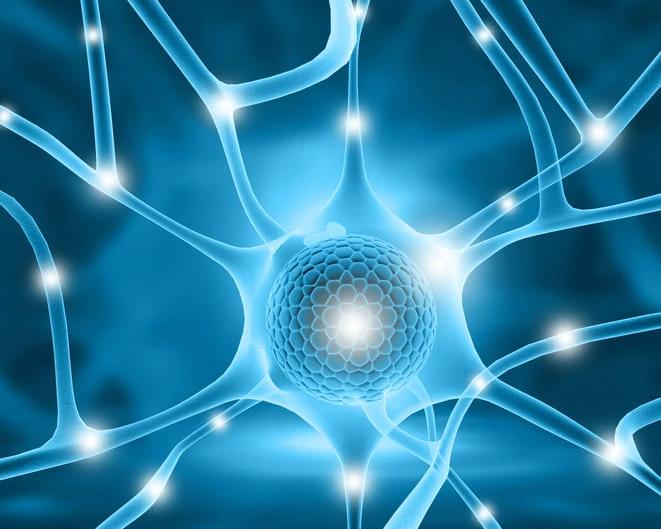KEY TAKEAWAYS
- KarMMa-2 is a phase 2 study aimed to assess the effectiveness and safety of ide-cel in patients with NDMM who achieved a VGPR 70–110 days after ASCT.
- Eligible patients received 3 cycles of induction therapy and subsequent lymphodepletion before a single infusion of ide-cel CAR+ T cells.
- The primary endpoint was the complete response (CR) rate, determined by the investigator according to IMWG criteria.
Patients (pts) with multiple myeloma (MM) who do not experience a profound response after ASCT have an increased risk of progression/death. Ide-cel led to frequent, deep, and durable responses in triple-class–exposed (TCE) relapsed and refractory multiple myeloma (RRMM) in the fourth line and beyond (4L+) setting in KarMMa, and significantly improved progression-free survival (PFS) and overall response rate (ORR) in 3–5L TCE RRMM in KarMMa-3.
This is a phase 2 multicohort trial of ide-cel in clinically high-risk multiple myeloma. Patients in cohort 2c exhibited insufficient responsiveness to initial ASCT (very good partial response [VGPR]). Assess the effectiveness and safety of ide-cel in cohort 2c. Eligible patients had newly diagnosed multiple myeloma (NDMM), received 3 cycles of induction therapy (including a proteasome inhibitor, immunomodulatory agent, and dexamethasone), had achieved VGPR 70–110 days after ASCT(single/dual), and had an ECOG PS 1. After lymphodepletion, patients received a single infusion of ide-cel CAR+ T cells at a planned dose range of 150–450×106 cells. Post-infusion, patients could receive maintenance therapy at the discretion of the investigator. The primary endpoint was the complete response (CR) rate (determined by the investigator according to IMWG criteria).
ORR, VGPR rate, time to response (TTR), duration of response, PFS, overall survival, tolerability, and pharmacokinetics were secondary endpoints; soluble BCMA (sBCMA) level and minimal residual disease negativity (MRD; sensitivity 10-5) were exploratory endpoints. Ide-cel was administered to 31 of 32 enrolled patients. The median age of patients was 64 years; 67.7% had ECOG PS 0, 41.9% had R-ISSstage I disease (none had stage III), and 87.1% had a partial response to ASCT. 9.7% of patients had high-risk cytogenetics, 3.2% had a significant tumor burden, and 6.5% had extramedullary disease. At data termination (14 March 2022; median follow-up, 27.9 months), the ORR was 87.1%, the CR rate was 74.2%, and the median TTR was 1 (range, 0.9–2.8 months). Neutropenia (80.6%), leukopenia (29.0%), and anemia (22.0%) were the most frequent adverse events (AEs) of grade (G) 3/4 severity; none were grade (G) 5. G1/2 cytokine release syndrome (CRS) was observed in 18 patients (58.1%); no patients had G3. Two (6.5%) patients had neurotoxicity identified by the investigator (1 G1 and 1 G3). The median fold change from baseline (BL) to maximal levels (Cmax) of inflammatory cytokines was 2.68 for IFN-, 4.31 for IL-6, 6.19 for IL-8, and 5.50 for IL-10.
Except for IL-8 (P=0.556), the median fold change from BL to Cmax was lower in KarMMa than in 4L+ RRMM (P<0.001). All pts exhibited robust cell expansion despite minimal tumor burden, as indicated by sBCMA level at infusion (range: 6.5–154.0 ng/mL; n=30); cellular proliferation was more significant in pts with CR compared to CR. sBCMA was cleared 2 months after infusion in 24 of 31 patients (77.4%), including 22 with CR. About 16/23 (69.6%; 95% CI: 49.1–84.4) evaluable patients with CR had MRD at 6 and 12 months post-infusion. About 11 had MRD at 24 months, while 5 had no indeterminate data. 17/28 (60.7%; 95% CI, 42.4–76.4) of all patients had MRD at 12 months. Ide-cel demonstrated numerous, profound, and durable responses in patients with VGPR to frontline ASCT, with early, deep tumor clearance in patients with CR sustained for 2 years. NDMM had a lower incidence of CRS/iiNT and lower levels of inflammatory cytokines than 4L+ RRMM. These findings corroborate ide-cel’s favorable clinical benefit–risk profile in NDMM.
Clinical Trial: https://www.clinicaltrials.gov/ct2/show/NCT03601078
Melissa Alsina, Madhav Dhodapkar, Jesus Berdeja, Krina Patel, Shambavi Richard, Ravi Vij, Xavier Leleu, Daniel Egan, P. Leif Bergsagel, Reshef Ran, Saad Z Usmani, Anna Truppel-Hartmann, Debashree Basudhar, Ethan Thompson, Xirong Zheng, Xiaobo Zhong, Chiara Greggio, Mihaela Popa McKiver, Marlene Carrasco Alfonso, David Siegel/IDECABTAGENE VICLEUCEL (IDE-CEL) IN PATIENTS WITH AN INADEQUATE RESPONSE TO FRONTLINE AUTOLOGOUS STEM CELL TRANSPLANTATION (ASCT): RESULTS FROM KARMMA-2 COHORT 2C/Inc, M. G. (n.d.). IDECABTAGENE VICLEUCEL (IDE-CEL) IN PATIENTS WITH AN INADEQUATE… by Melissa Alsina. Library.ehaweb.org. Retrieved July 15, 2023, from https://library.ehaweb.org/eha/2023/eha2023-congress/386700/melissa.alsina.idecabtagene.vicleucel.28ide-cel29.in.patients.with.an.inadequate.html?f=menu%3D16%2Abrowseby%3D8%2Asortby%3D2%2Ace_id%3D2489%2Aot_id%3D27922%2Atrend%3D4016%2Amarker%3D4178



